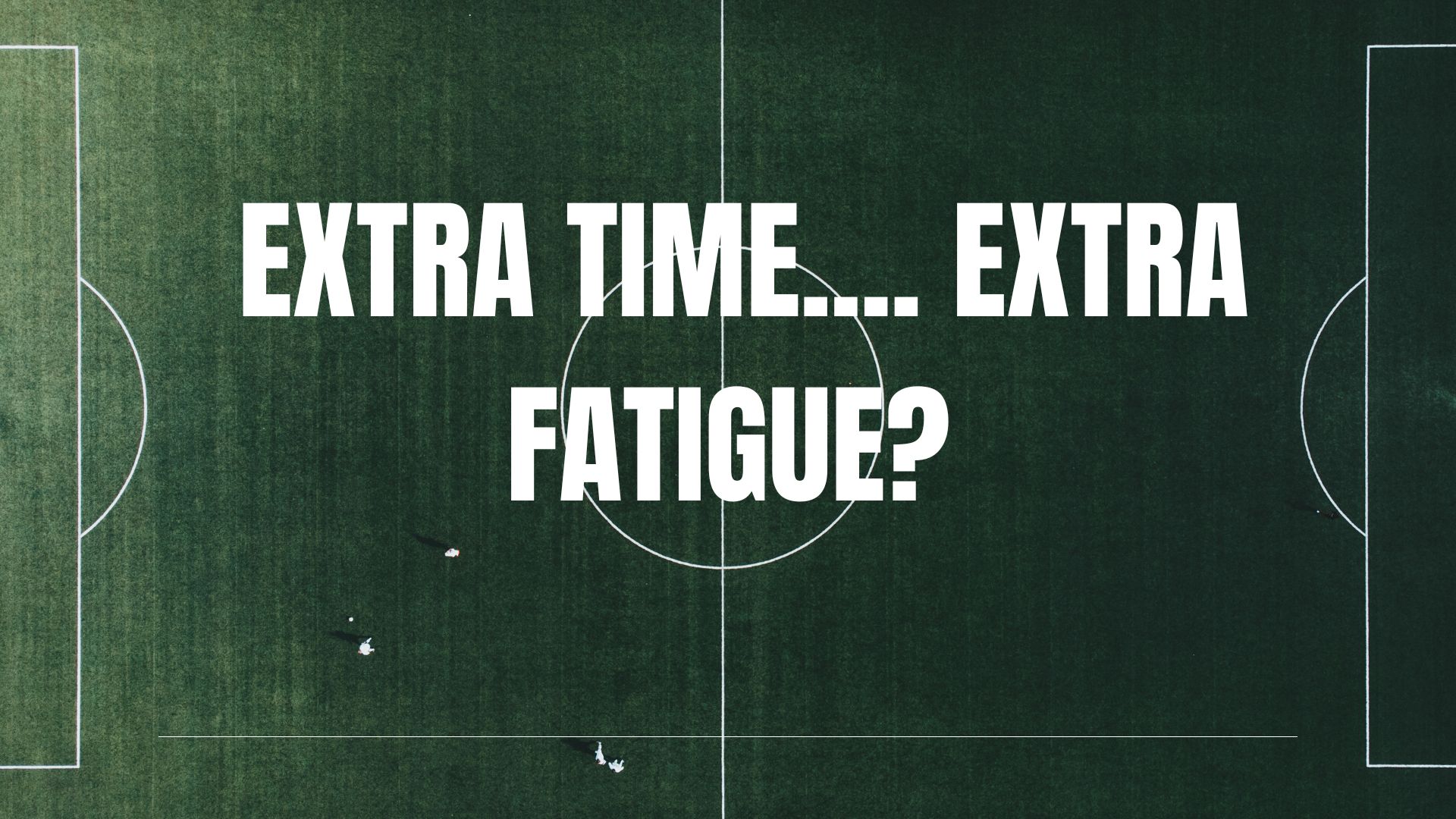30 Minutes More : The Debate Around Extra Time
Should it be Scrapped?

Extra time has always carried a certain sense of occasion. It is where some of the sport’s most iconic moments have unfolded, the kind that define careers and linger in the memory of fans. A late finish in a World Cup final or a decisive goal in a Champions League knockout tie can feel like the purest expression of competitive resolve. Yet, these moments do not represent the full reality. For every dramatic extra-time winner, there are many matches in which the additional thirty minutes produce slow, cautious football shaped more by exhaustion than inspiration.
The conversation around extra time has returned in recent years because the demands of the modern football calendar have changed. The expansion of the Champions League, the new Club World Cup format, longer domestic seasons, and increasing travel schedules have placed a consistently heavier load on elite players. Coaches, medical departments, and even players themselves have pointed to cumulative fatigue and the long-term risk of overuse injuries. Against this backdrop, UEFA has debated whether extra time remains necessary or whether it is a tradition whose competitive and historical value no longer outweighs the physical toll it imposes.
The question is not a simple one. To keep extra time is to preserve a long-standing measure of stamina, resilience, and tactical depth. To remove it is to prioritize player welfare and potentially encourage more direct and purposeful football across the ninety minutes. The debate reflects a deeper tension between sentiment and practicality, between what football has always valued and what the sport now requires to remain sustainable.
Supporters of extra time argue that it completes the contest. A match of such importance, they say, should not be decided solely by penalties, which isolate one specific technical and psychological skill. Playing an additional thirty minutes allows teams to continue the match in its normal form. It tests stamina, concentration, adaptation, and the depth of the squad. Coaches must make real decisions about substitutions, game management, and the balance between risk and caution. In this view, extra time is not a burden but an essential proving ground.
There is also the emotional and narrative side. Goals scored in extra time often feel earned because they emerge from the match itself. The momentum, pressure, and flow of play lead into them. They belong to the story the match has already been telling. A penalty shootout, while tense and dramatic, sits outside that rhythm. It can feel abrupt. Those who value extra time believe that a decisive goal in play, even a scrappy one, provides a fuller and fairer conclusion.
Finally, there is the question of fairness. With the away goals rule now removed, both teams receive the same environment over the same duration. Extra time serves as a final, shared opportunity to decide the contest through football rather than through an isolated tie-break. It is seen as a continuation of the core competition rather than a departure from it. For those who advocate for maintaining tradition, this is the strongest justification for keeping extra time in place.
The strongest argument against extra time is player welfare. Modern football places far greater physical demands on players than it did even a decade ago. High pressing, fast transitions, and continuous defensive restructuring all require sustained intensity. Adding thirty more minutes at the end of a match, often during the most congested periods of the season, significantly increases the risk of fatigue and soft-tissue injuries. Medical departments frequently report that the additional load in extra time can have effects that extend well beyond a single match, influencing recovery cycles and performance levels for several weeks.
There is also the issue of football quality. Extra time rarely produces the same level of energy or clarity that defines the first ninety minutes. Players are tired, decision-making slows, and both teams often become cautious. Instead of chasing a goal, they focus on avoiding errors. Matches drift rather than develop. The result is not always dramatic endurance football but long passages of slow possession or long clearances, especially when both sides appear resigned to reaching the penalty shootout.
Another important concern is fairness. Extra time tends to favor teams with deeper squads, which often means clubs with greater financial resources. These teams can introduce highly capable substitutes who can make the difference when opponents are physically drained. Smaller clubs, even when they have matched their opponents for ninety minutes, may struggle to maintain performance levels in the additional period. This dynamic can reduce the sense of competitive balance, particularly in knockout competitions where margins are already thin.
The final consideration is practical. Extra time adds unpredictability to match length, which affects scheduling and viewing. Many knockout games already finish late, and adding thirty minutes plus the possibility of penalties can push matches well past comfortable viewing windows, particularly for international audiences in different time zones. While this is not the main argument, it contributes to a broader sense that extra time is increasingly difficult to justify within the modern football environment.
The most straightforward alternative to extra time is to move directly to a penalty shootout. Penalties are clear, dramatic, and decisive. They reduce the physical strain on players and guarantee that matches reach a conclusion in a predictable timeframe. However, going straight to penalties may encourage teams to adopt conservative strategies late in normal time, choosing to manage risk rather than pursue the winning goal. The concern is that the final stages of matches could become less ambitious rather than more.
Other solutions have been tested before. The Golden Goal rule, introduced to encourage attacking intent, created moments of high tension but was seen as too abrupt, often leaving the losing side with no chance to respond. The Silver Goal attempted to soften this by allowing the remainder of the half to be played, but it complicated the conclusion and never earned broad support. Both experiments showed that altering the format can influence player behavior, but neither produced the balanced outcome organizers hoped for.
UEFA has paused the idea of removing extra time for now. Their position is that immediate penalties may distort match incentives and undermine the competitive structure of knockout football. However, the pressures driving the debate have not disappeared. Fixture congestion is increasing, the commercial calendar is expanding, and evidence from sports science continues to emphasize recovery and workload management. The governing bodies have preserved tradition for the moment, but the discussion remains active.
Extra time remains one of football’s most symbolic traditions, offering the chance for matches to be decided through the flow of play rather than a penalty shootout. Yet the modern game has changed. Fixture congestion, higher physical demands, and widening gaps in squad depth have made the additional thirty minutes harder to justify. While many fans still value the drama and narrative weight of extra-time goals, the long-term direction of elite football is shifting toward prioritizing player welfare and maintaining competitive balance. The format remains in place for now, but the pressures pushing against it are growing, and its future is far from secure.






